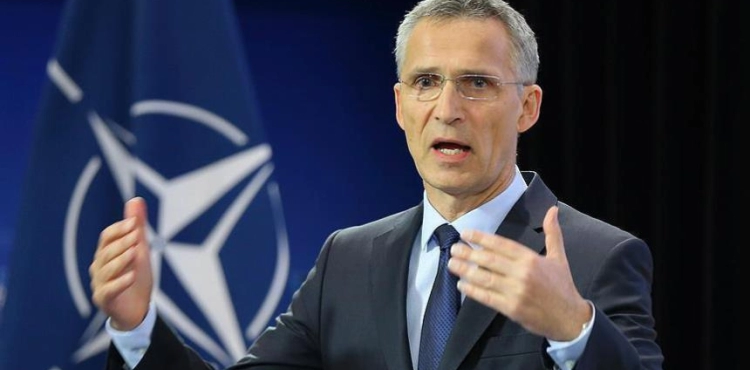NATO Secretary-General Jens Stoltenberg defended America´s military commitment to Europe on Monday after reports that President Donald Trump intends to reduce the number of troops in Germany.
Berlin has expressed concern about the proposal in the US media to reduce the number of 34,500 American soldiers in Germany by nearly a third.
The move would significantly reduce the US commitment to European defense under the umbrella of NATO, and it seemed to be a surprise to Berlin.
In response to a question in this regard, Stoltenberg declined to comment directly on "leaks or media speculation" but said he was "constantly consulting" with Washington about its military presence in Europe.
And as he often does when pressed to comment on the Trump administration´s skepticism about NATO, Stoltenberg set out in a detailed defense of Washington´s commitment to European security.
"In the past few years we have seen an increase in the American presence in Europe again ... and this is not only related to Germany. We saw, for example, the deployment of a new American brigade in Europe, we saw more rotational attendance, we saw the United States take the lead in NATO Combat Group in Poland. "
Despite political tensions across the Atlantic, Stoltenberg insisted that NATO allies "work together now in Europe more than we have done for many years."
Stoltenberg was speaking during an online question-and-answer session to launch an exchange of ideas between experts aimed at strengthening the alliance in the wake of the Covid-19 pandemic.
There was no official confirmation of the plan to reduce the number of US forces in Germany to 25,000.
But Trump´s lukewarm support for long-term cooperation deals with European allies has long raised concern on the continent.
Trump launched a particularly scathing attack on Germany, the European economic powerhouse, accusing it of not spending enough to defend itself.
Germany hosts more American forces than any other country in Europe and is a legacy of its allies ’occupation after World War II, and while presence has declined since the Cold War, it remains an important base.
In addition to acting as a deterrent to a rising Russia, US forces use German bases to coordinate military operations in Europe, Africa, and the Middle East.












